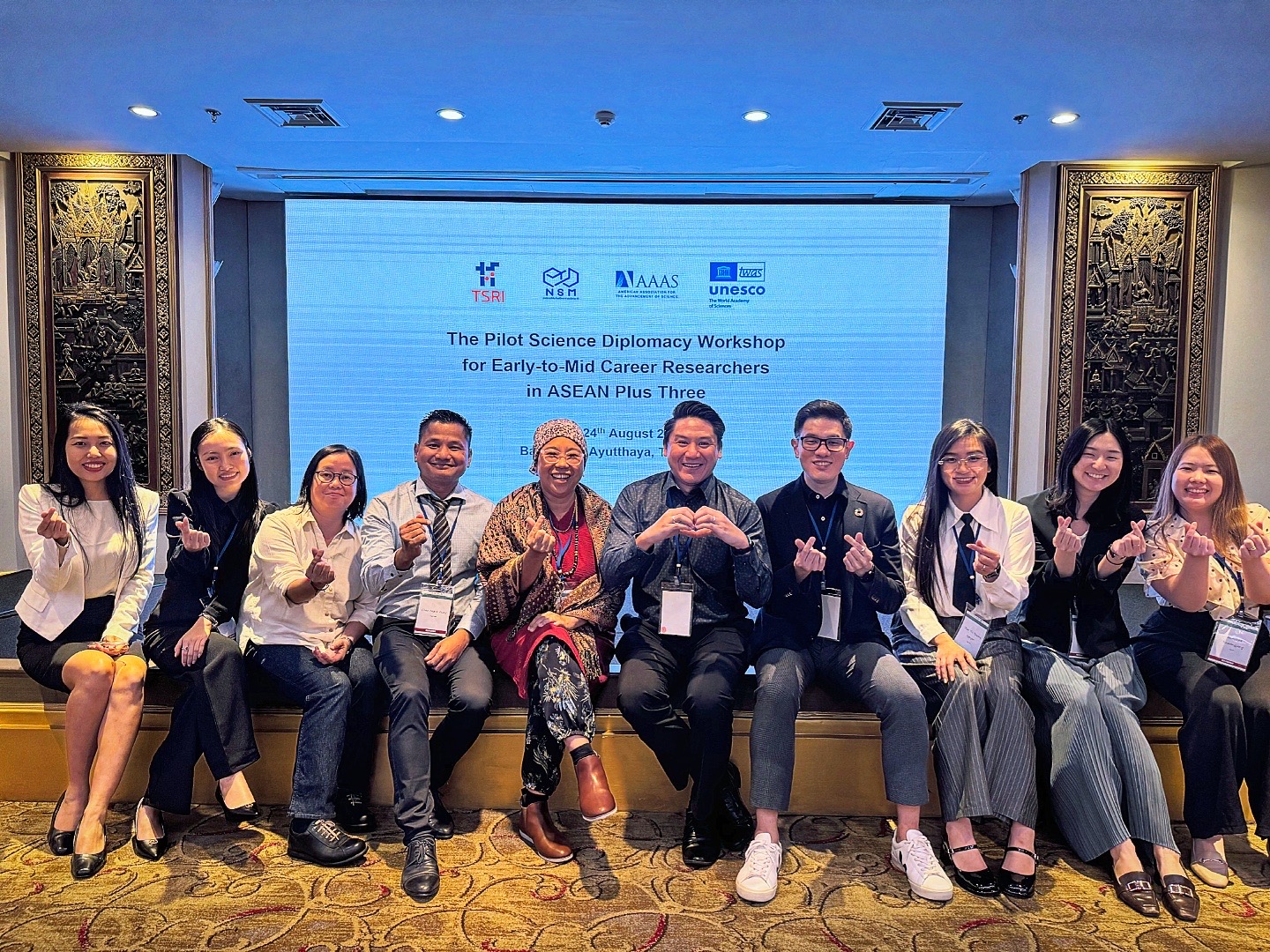Global Young Academy members Peter Gan Kim Soon (Ministry of Health Malaysia, Malaysia) and Thao Thi Phuong Nguyen (Hanoi Medical University, Vietnam) participated in the first Science Diplomacy Workshop for Early-to-Mid Career Researchers in ASEAN Plus Three.
The workshop was co-organized by Thailand Science Research and Innovation, the National Science Museum of Thailand, in cooperation with The World Academy of Sciences (TWAS), and the American Association for the Advancement of Science (AAAS) in Bangkok, Thailand.
This three-day workshop was the first of its kind in ASEAN to pair early to mid-career researchers with policymakers to embark on a journey of knowledge, inspiration and collaboration, to acknowledge the important role of one another, and more importantly, to learn to better communicate with each other. It further provided a unique platform to delve into the intricacies of science diplomacy and its potential to address pressing global challenges
The workshop, divided into two comprehensive segments, offered a deep dive into the principles and applications of science diplomacy. Part I emphasised the critical role of science diplomacy in navigating global commons, managing transboundary resources, and fostering international partnerships. Participants were challenged to envision the future impacts of science and technology, cultivate the necessary capacity, and forge connections across borders.
Part II, the Advancing Leadership Program, shifted the focus to leadership development. This segment aimed to equip researchers with the skills and knowledge required to become effective changemakers. The workshop underscored the importance of transdisciplinary research, stakeholder involvement, and a more integrated approach to tackling complex global problems.
The second part of the workshop was driven by the National Science Foundation, TSRI, and Inclusive Innovation, with support by Belmont Forum.
Peter and Thao provided the following key takeaways from the workshops:
- The transformative power of science diplomacy: Science diplomacy can serve as a catalyst for addressing global challenges, fostering cooperation, and promoting sustainable development.
- The imperative of anticipatory science: Scientists must anticipate the potential implications of their research and work collaboratively with policymakers to develop effective policies.
- The necessity of capacity building: Cultivating the skills and knowledge required for effective engagement in international collaborations is paramount.
- The value of transdisciplinary research: Collaborating across disciplines is essential for addressing complex problems and developing innovative solutions.
- The significance of stakeholder involvement: Engaging with stakeholders from diverse backgrounds is crucial to ensure the relevance and impact of science diplomacy efforts.
